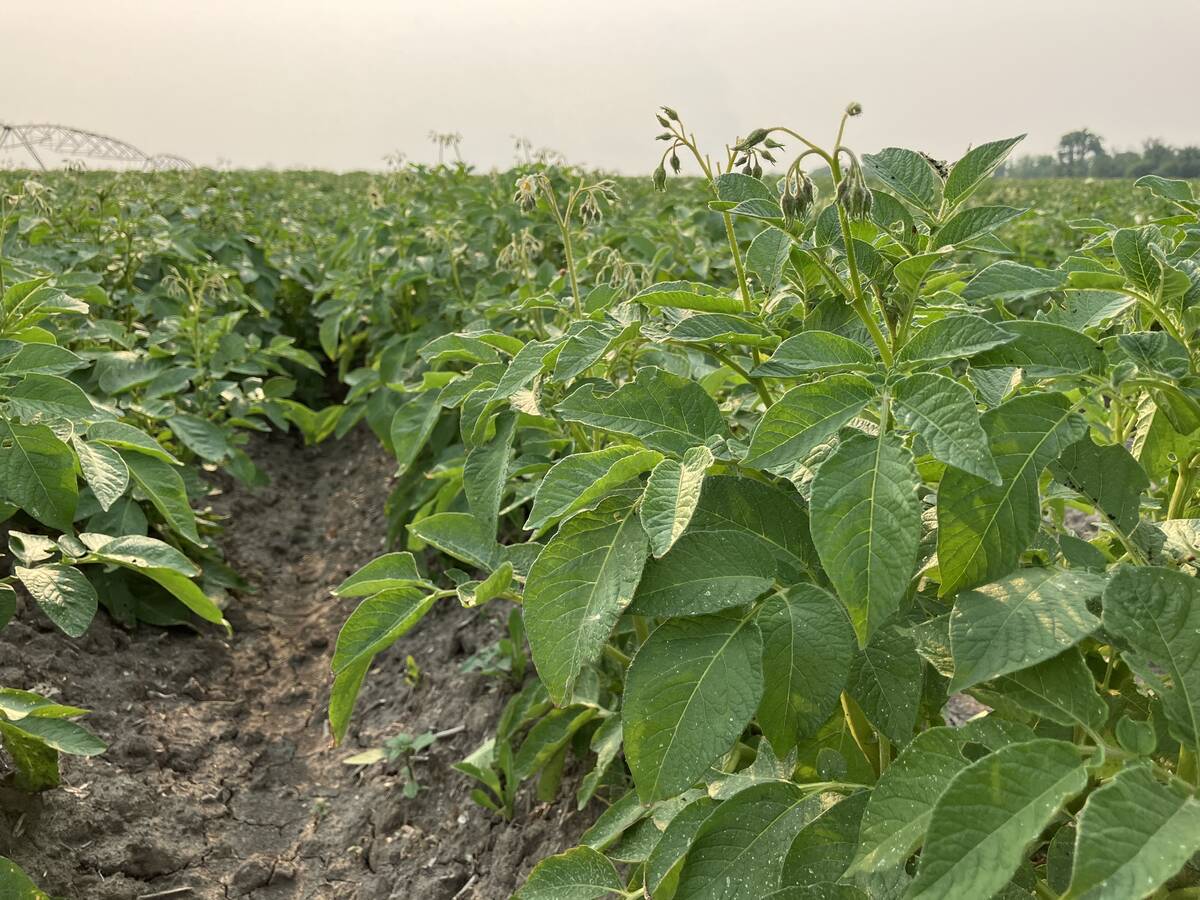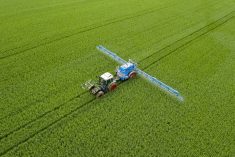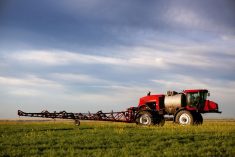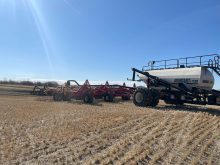Since the introduction of genetically modified (GM) crops can have a huge impact on farmers they should have a say in whether GM crops get commercialized, says Ian Mauro, a postdoctoral fellow at the University of Victoria’s School of Environmental Studies.
Canada’s current ‘science-based’ regulatory process doesn’t take socioeconomic factors into account in the approval process. But Mauro says they can be scientifically measured. The results are summarized in a peer-reviewed research paper entitled Farmer knowledge and a priori risk analysis: pre-release evaluation of genetically modified Roundup Ready wheat across the Canadian Prairies.
Read Also

Potatoes join Innovation Farms testing ground
New MacGregor site adds potato farming to FCC and EMILI’s agriculture tech initiatives in Manitoba.
Mauro was the paper’s lead author along with University of Manitoba researcher Stéphane McLachlan and the University of Guelph’s Rene Van Acker.
“And anybody who says it shouldn’t be done because it’s too complicated is either lazy or isn’t interested in truly understanding the full the nature of the impact biotechnology presents for rural communities,” Mauro said in an interview June 22.
Mauro surveyed 1,566 farmers across Western Canada in 2004 on their views towards what then appeared to be the imminent introduction of Monsanto’s GM Roundup Ready wheat. Eightythree per cent rejected its introduction. The biggest concern was loss of wheat markets since most buyers said they didn’t want GM wheat.
Farmers were also worried Roundup Ready wheat volunteers would be hard to control and would be especially troublesome for minimum and no-till farmers who rely on Roundup (glyphosate) for weed control. The increased possibility of weeds becoming resistant to glyphosate and corporate control of seed through patenting were also issues.
Organic farmers were worried spreading Roundup Ready genes making it impossible to produce organic wheat since by definition it their wheat must be GM-free.
Even a high percentage of farmers already growing GM canola opposed the introduction of Roundup Ready wheat because concerns out weighed the benefits, Mauro said.
“Socioeconomics are intrinsically linked to the biology of GMO crops and farmers know it and it’s obvious to them,” he said. “They see it as a holistic system.
“Their voice brings an important perspective if brought into policy circles might really help to clarify what the impacts are and how to deal with these crops.”
Just recently the Grain Growers of Canada, the National Association of Wheat Growers in the United States and the Grains Council of Australia, issued a statement supporting the introduction of GM wheat in co-ordination with market acceptance.
But Mauro believes a majority of Western Canadian farmers are still opposed to Roundup Ready wheat. When asked in 2004 if they would grow it if there was regulatory and market approval, only 16 per cent said they would.
“Our study as whole shows farmers are categorically opposed to Roundup Ready wheat because it presents some specific challenges and that specific crop doesn’t make sense for Prairie farmers,” he said. “It doesn’t say farmers are categorically opposed to GM wheat.”
Farmers are pragmatic, not ideological about new technology, Mauro said. They want to make money, but in a sustainable way so their kids can farm.
“I (as a farmer) can’t be motivated by what Monsanto or Greenpeace is saying,” he said. “I have to be motivated by my family and the land that supports it.” [email protected]



















